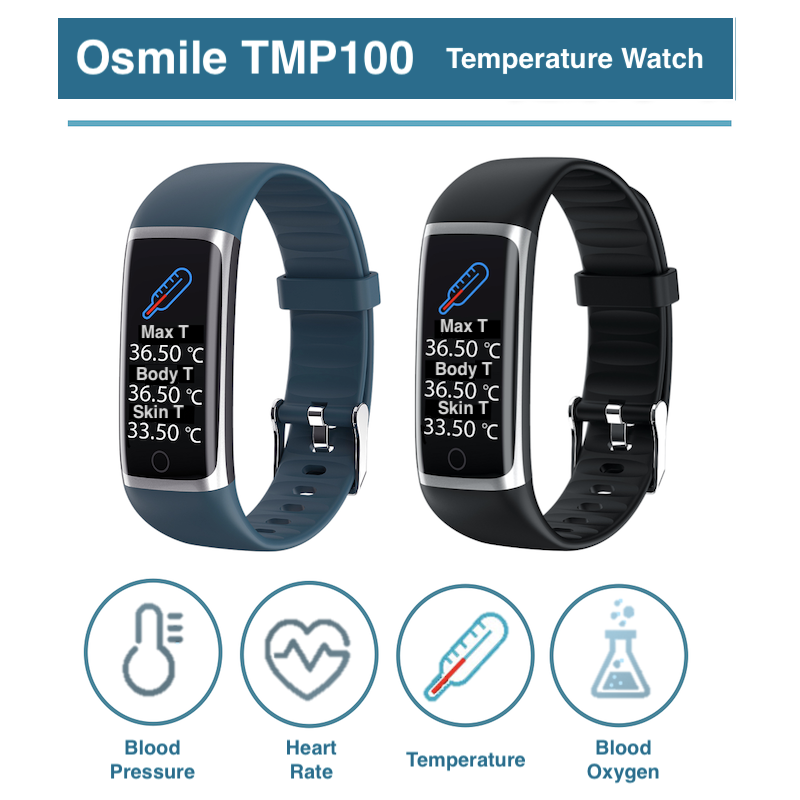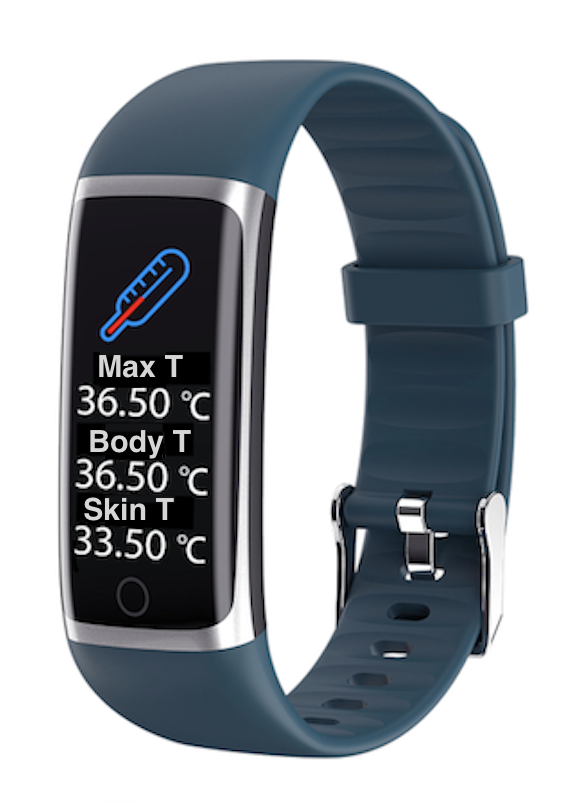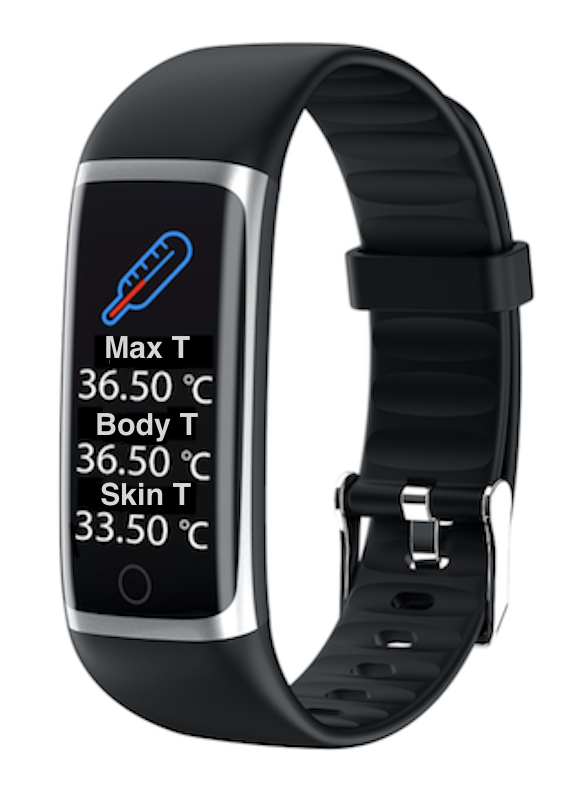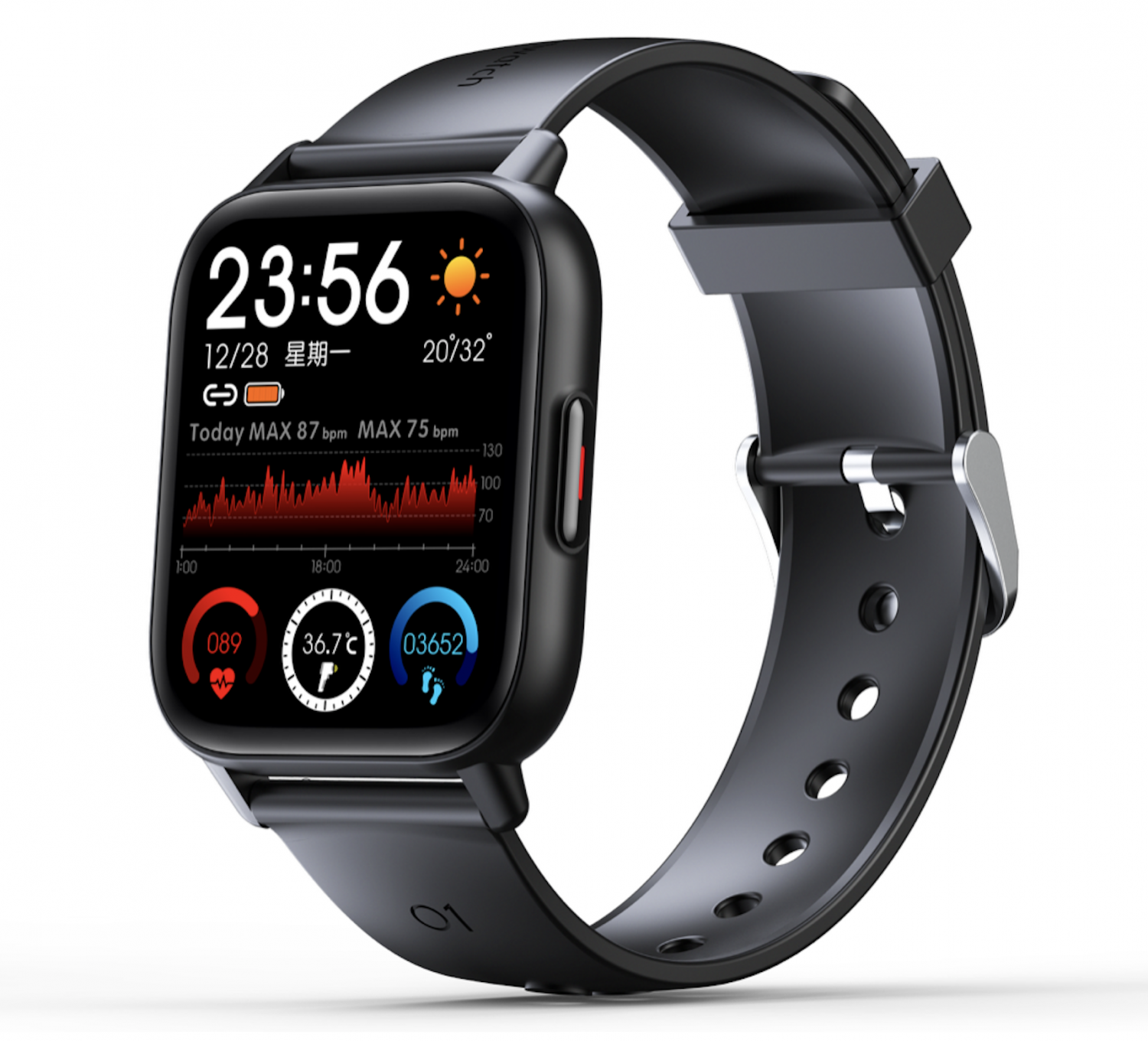Body Temperature Watch
Osmile TMP100 Temperature Watch
Prix d’origine €
143 EUR
Prix spécial € 123
EUR
Osmile TMP100 Temperature Watch
- Continuous heart rate monitor
- Dynamic heart rate monitoring
- Blood pressure monitoring
- Oxygen monitoring
- Sleep quality monitoring
- Body temperature monitoring
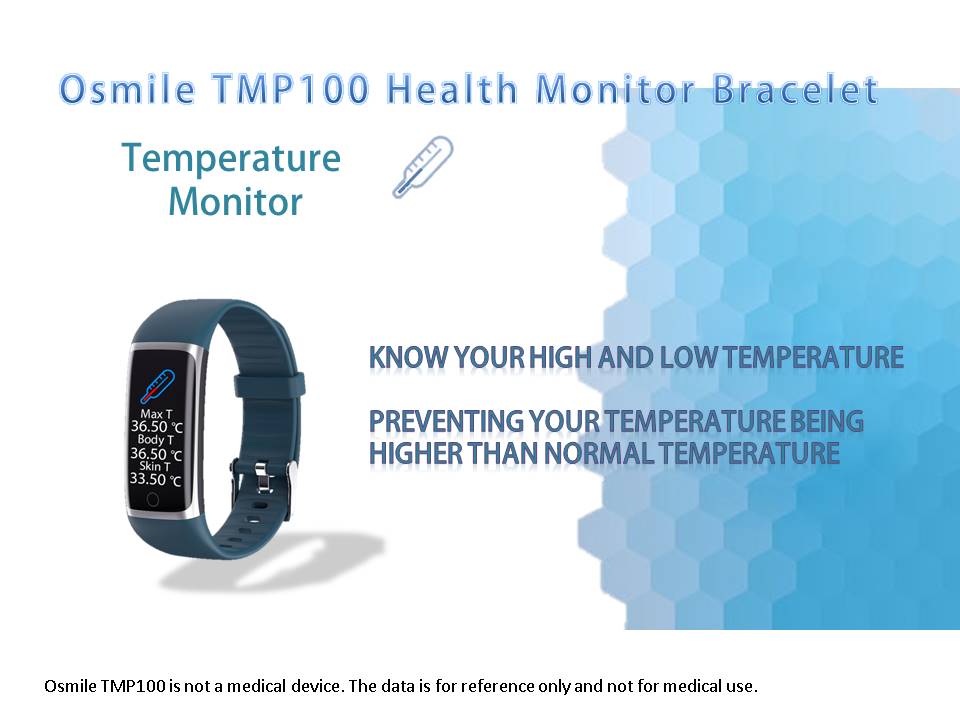
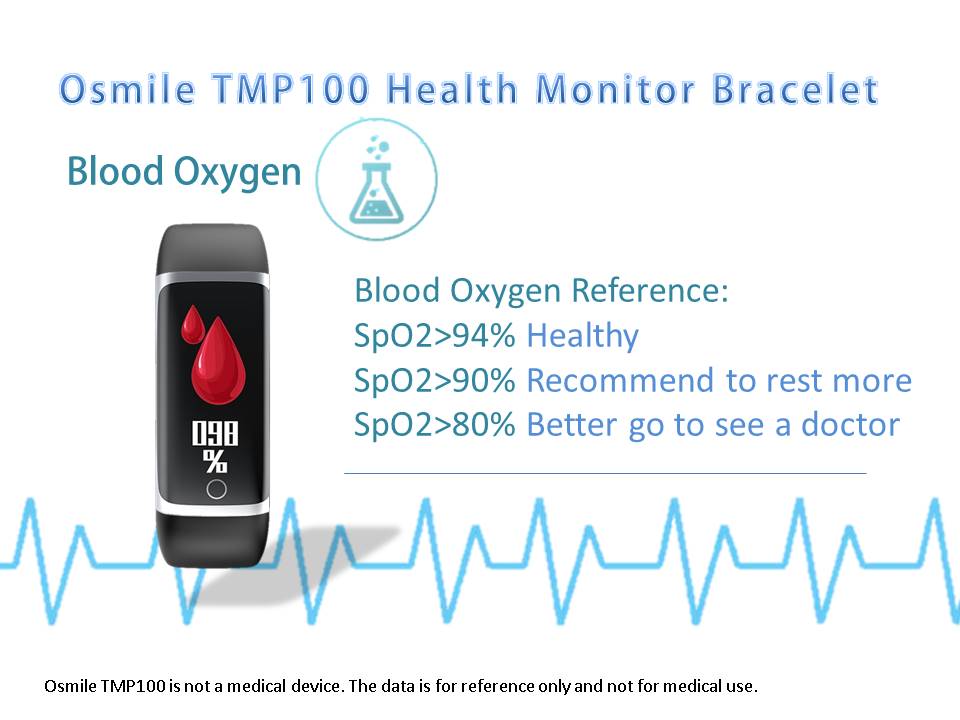
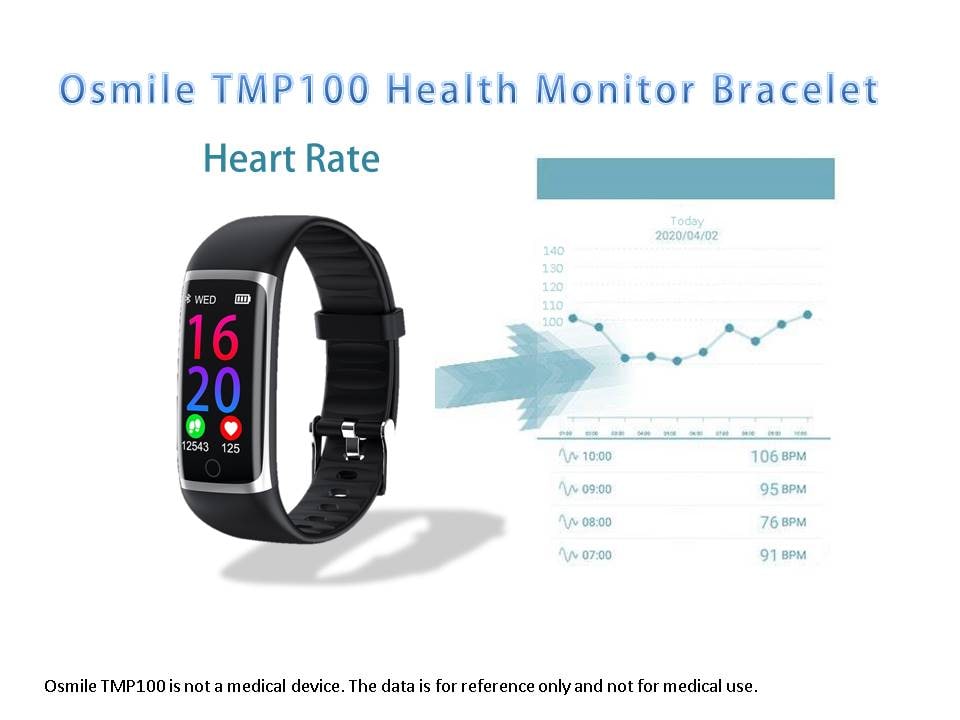
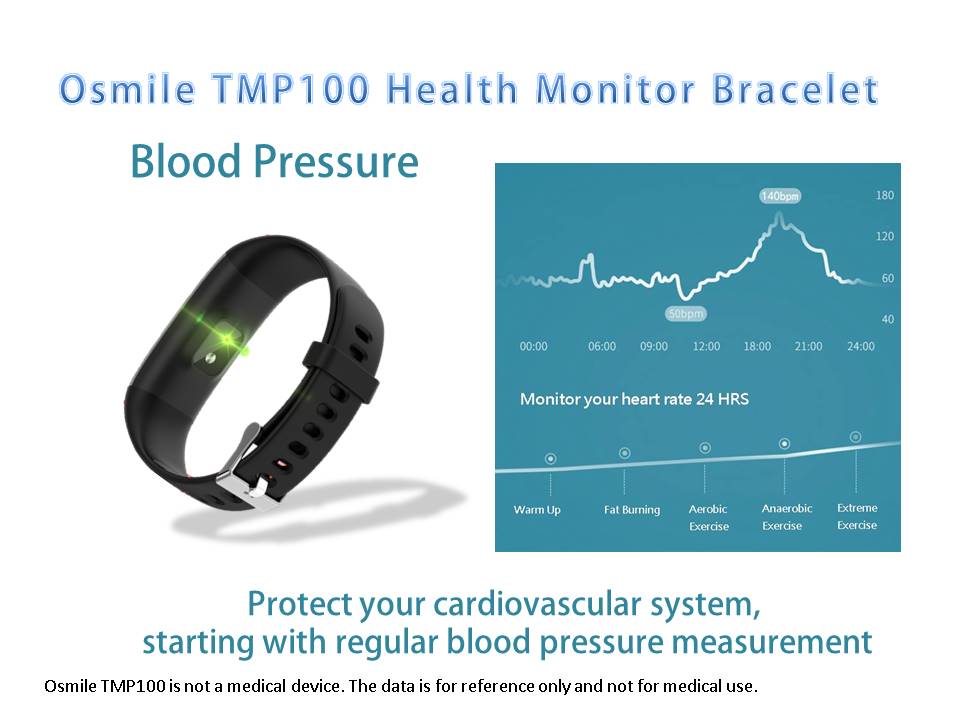
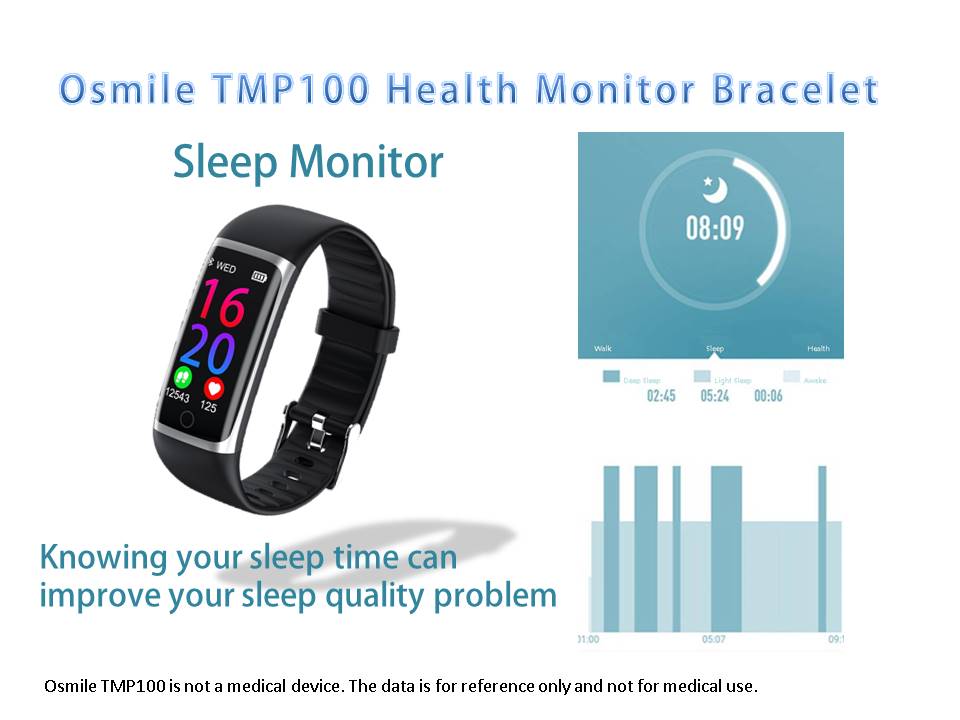

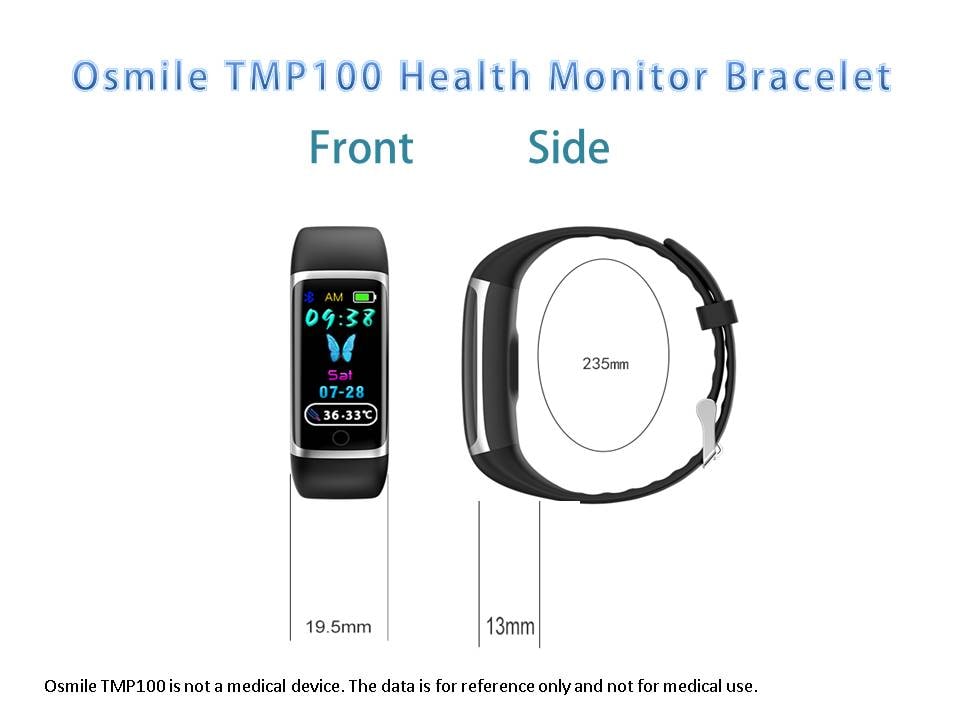
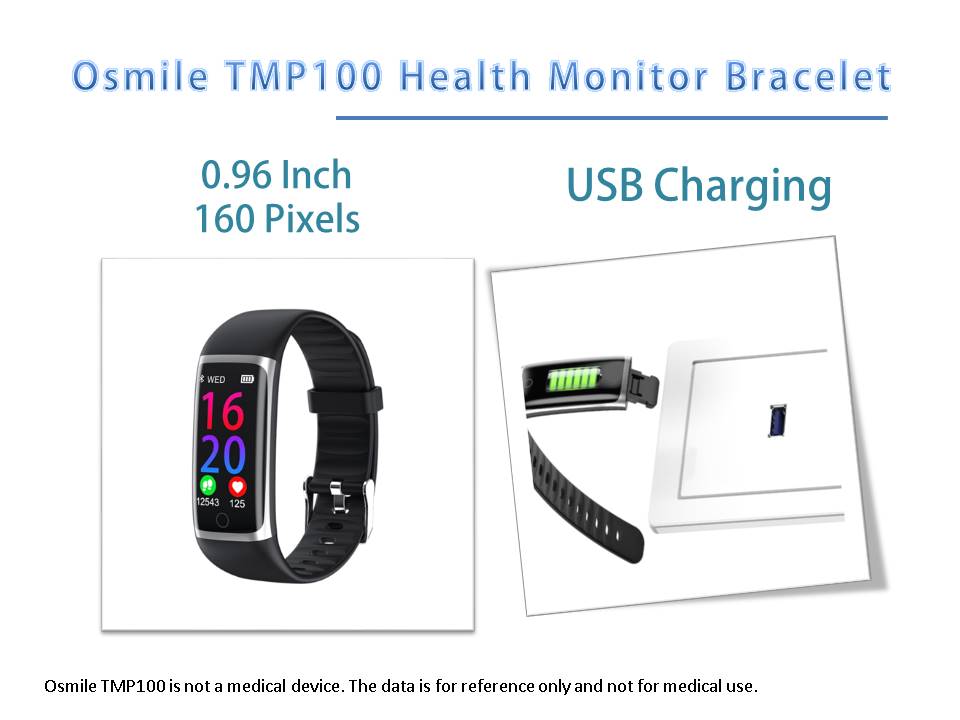
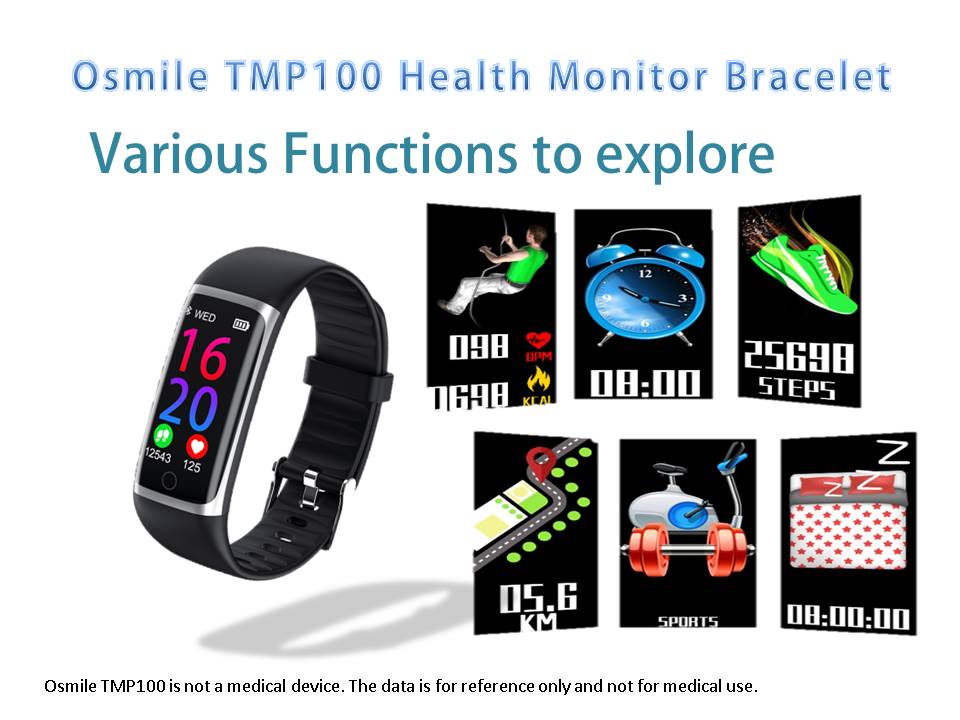
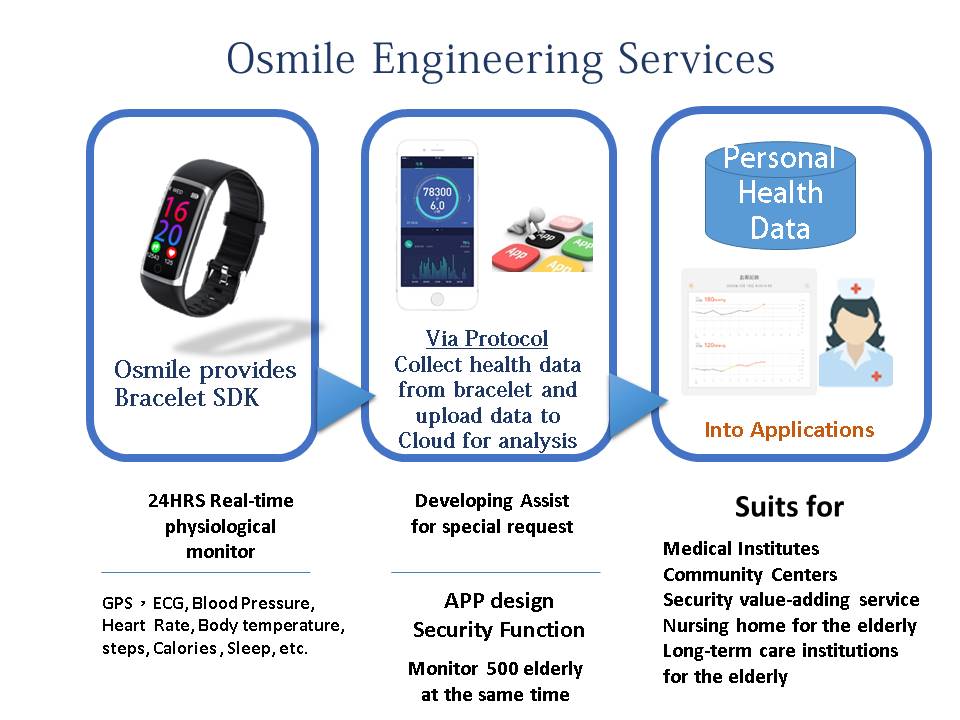
.png)
Osmile TMP100 Temperature Watch
- Continuous heart rate monitor
- Dynamic heart rate monitoring
- Blood pressure monitoring
- Oxygen monitoring
- Sleep quality monitoring
- Body temperature monitoring
Osmile TMP100 exercise monitor:
- Stopwatch
- Pedometer (Walking or running)
- Running calories consumption
- Calculation running distance
- GPS motion tracking
- Hiking
- Biking
Osmile TMP100 caring service:
- Alarm vibration reminder
- Various vibration reminders
- Incoming call reminder
- Message reminder (Line, Facebook, Skype, Twitter, WeChat, QQ, WhatsApp, Kakao Talk, SMS, etc.)
- Anti-lost mobile phone
- Selfies
- Raise hand Display
Osmile TMP100 Specification:
- Processor: nRF52832
- Heart Rate Sensor:HPS3300
- Temperature Sensor:CT1711MCR
- Wireless transmission:Bluetooth 4.0 BLE
- Operating System:Android 4.4 and above ; IOS 8.0 and above
- 0.96 " IPS
- Resolution : 128 x 64 AMOLED
- Voltage:5 V
- Battery capacity:90 mAh Lithium battery
- Charging Method:USB charging
- Weight:23 g
- Operating temperature:-10℃ – 50℃
- Watch Size:26.6 * 2 * 0.7 cm
- Watch material:Silicon
- Watch color:Black 、Blue
- Language Support:Taiwan、English、Japanese、Korean、French、Germany、Russian、Poland、Spanish
- IP Level:IP67(Not support swimming or shower)
- Charging Time:1.5小時
- Operating Time:3-5 days (Depends on the usage)
- Standby Time:about 10 days
- Warranty :12 months (Non-Artificial Damaged)
Osmile TMP100 Supports System Integration to Cloud for analysis
Delta variant: 8 things you should know about this COVID-19 strain
A newer strain of COVID-19 is causing concern as cases are rising in California and across the U.S. The Delta variant, which originated in India, began spreading more rapidly and making news around the middle of June. Now, health experts are warning of another surger of COVID-19. Here's what health experts have learned about the Delta variant:
1. Delta variant is highly contagious
As of July 22, nearly 80% of UC Davis Health patients who tested positive for COVID-19 had the Delta variant. According to the CDC during the same week, the Delta variant accounted for more than 80% of new cases in the U.S. Health experts say it's typical for a new strain of a virus to be more contagious because it often becomes much more efficient and easily transmitted.
2. Delta variant symptoms are the same
The symptoms of the Delta variant appear to be the same as the original version of COVID-19. However, physicians are seeing people getting sicker quicker, especially for younger people. Recent research found that the Delta variant grows more rapidly – and to much greater levels – in the respiratory tract.
Typically, vaccinated people are either asymptomatic or have very mild symptoms if they contract the Delta variant. Their symptoms are more like those of a common cold, such as cough, fever or headache, with the addition of significant loss of smell.
3. Delta variant is affecting unvaccinated people more
Most patients hospitalized at UC Davis Medical Center are people who have not received the COVID-19 vaccine. Nationally, 97% of patients hospitalized with COVID-19 are unvaccinated, as of July 22. Vaccines are highly effective at preventing COVID-19 infection and are also effective in fighting against the Delta variant.
In California and across the U.S., data shows that areas with lower vaccination rates tend to have higher COVID-19 infection rates. Health experts urge that COVID-19 vaccines work to prevent severe disease, which may be fatal.
4. Breakthrough cases for vaccinated people are rare, but do happen
When a vaccinated person tests positive for COVID-19, most either have no symptoms or have very mild symptoms, and it rarely results in hospitalization or death. Their symptoms are more like those of a common cold, such as cough, fever or headache, with the addition of significant loss of smell.
No vaccine is 100% effective. With the COVID-19 vaccines averaging about 90% efficacy, health experts expect about 10% of those vaccinated could be infected. According to the U.S. Center for Disease Control and Prevention, about 0.005% of the vaccinated population has reported breakthrough cases of COVID-19.
5. Delta variant could be catastrophic in some communities
In communities with lower vaccination rates, particularly rural areas with limited access to care, the Delta variant could be even more damaging. This is already being seen around the world in poorer countries where the COVID-19 vaccine isn't as accessible. Health experts say the impact could be felt for decades to come.
6. Many unvaccinated patients with COVID-19 wish they had gotten the vaccine
UC Davis Health physicians have noted that a number of younger patients, when they come in with critical illness, say that they wish they would have gotten the COVID-19 vaccine. Many patients have told their physicians, "Why did I not get the vaccine?" or "Why did I not listen?"
7. Some experts are recommending to wear masks, even if you're fully vaccinated
Many health experts across the country are wearing masks themselves even though they're fully vaccinated against COVID-19. They're also advising vaccinated people to avoid large gatherings and mask up indoors where the vaccination status of other people is unknown.
8. More COVID-19 variants are likely to come
The Delta variant is currently the most prominent strain of COVID-19, but the Lambda variant out of South America is also emerging. Health experts urge that if people want to get back to normal, a significant portion of the population needs to be vaccinated. As long as a chunk of people across the world are unvaccinated, new strains of the virus will continue to develop and cause problems.
Précédent | Retour à la page précédente | Suivant


